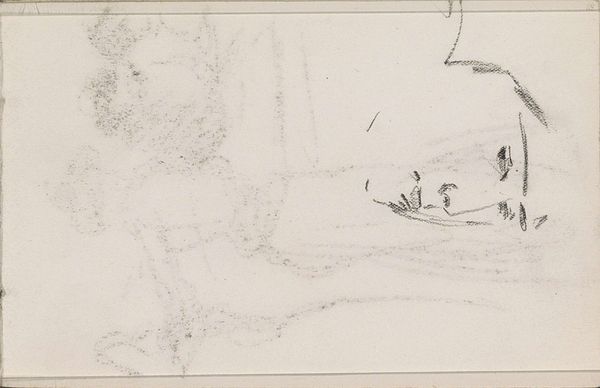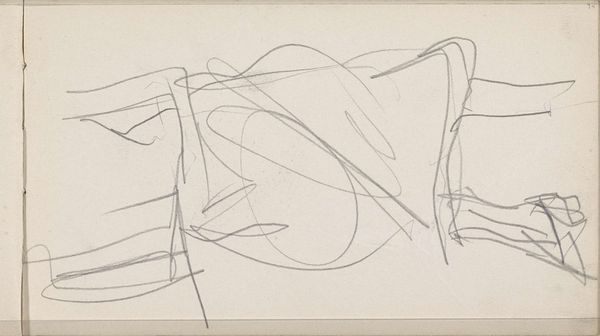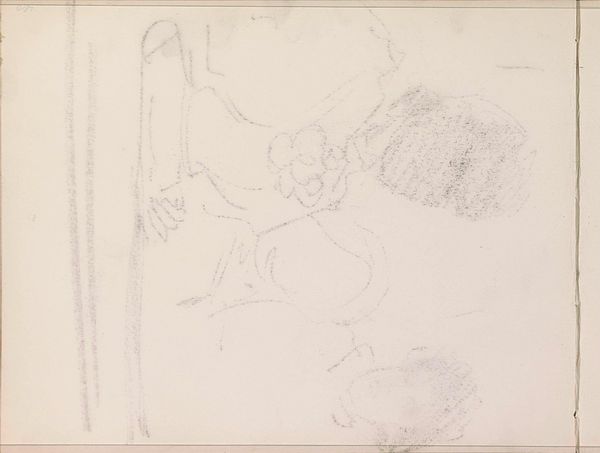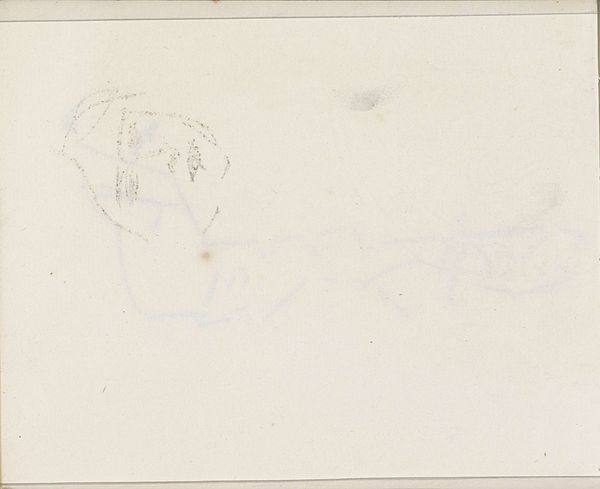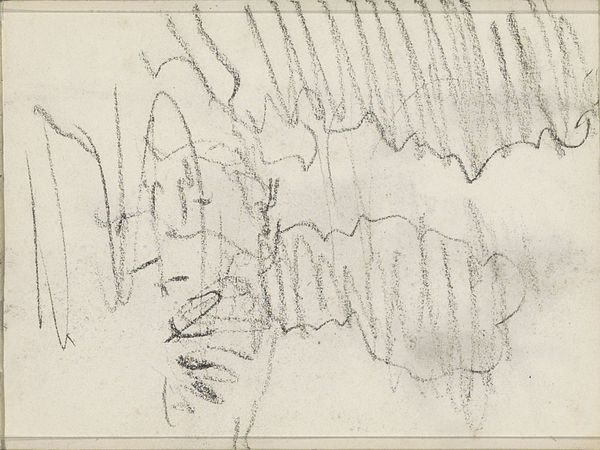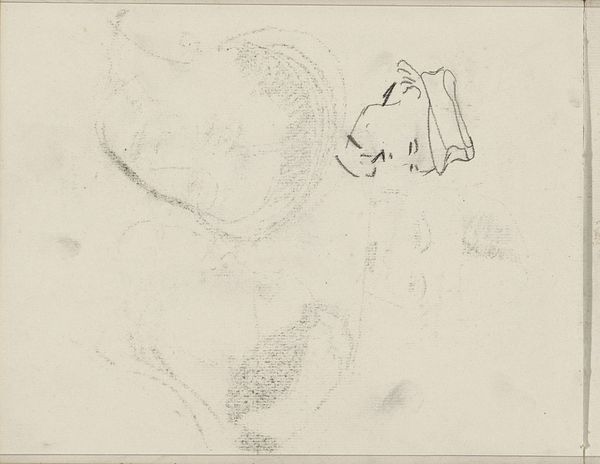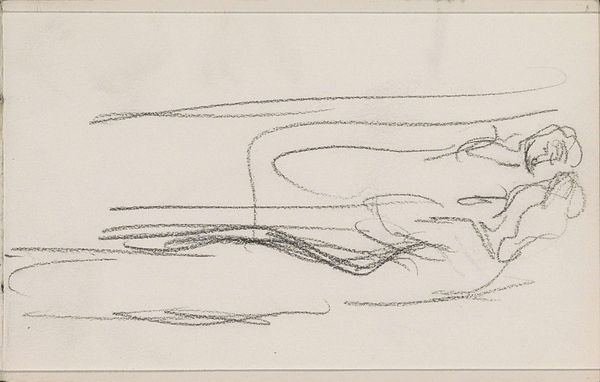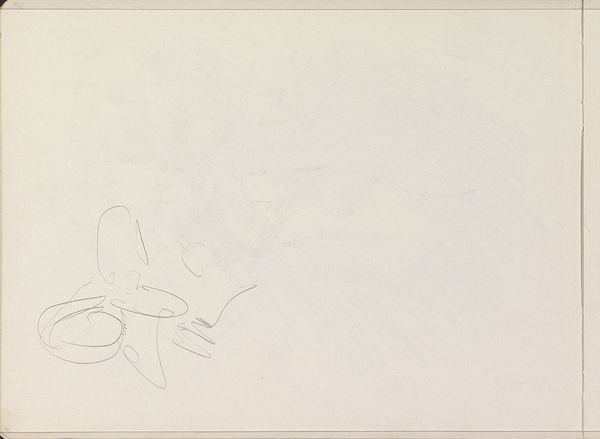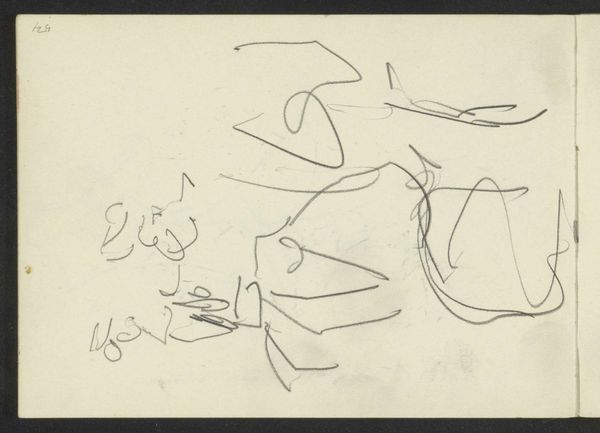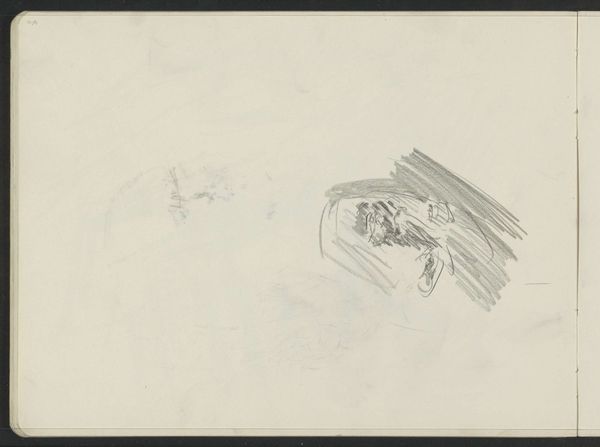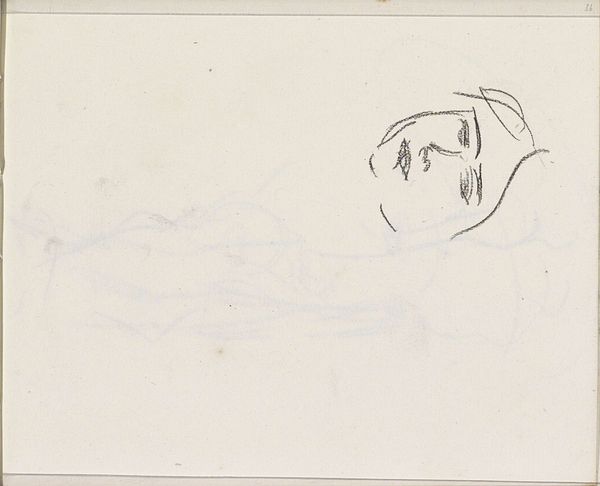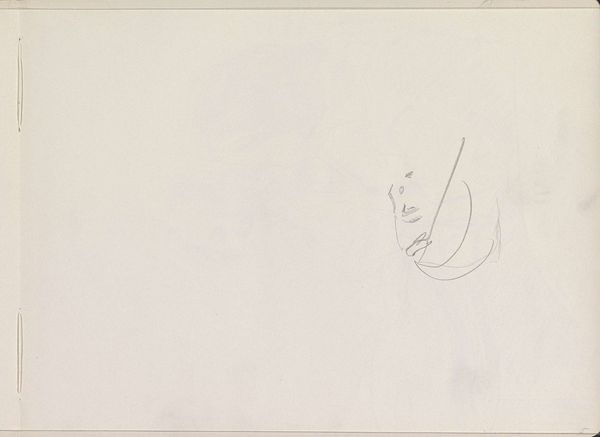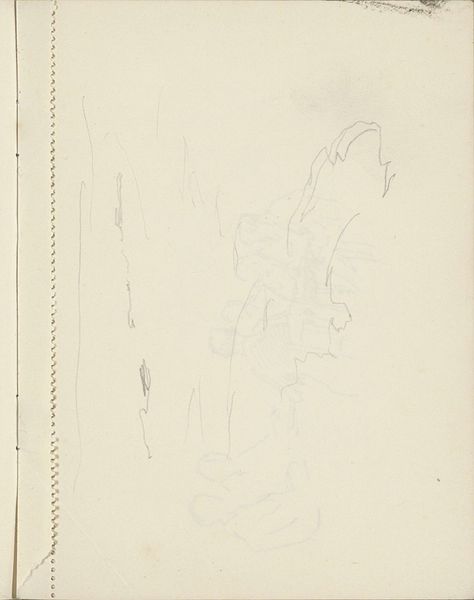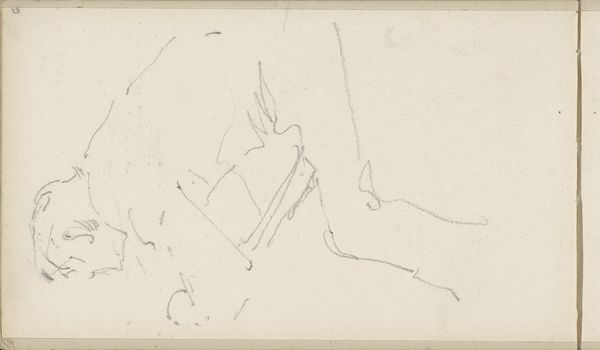
drawing, paper, dry-media, pencil, graphite
#
drawing
#
amateur sketch
#
light pencil work
#
pencil sketch
#
sketched
#
incomplete sketchy
#
paper
#
dry-media
#
personal sketchbook
#
ink drawing experimentation
#
pencil
#
abstraction
#
graphite
#
sketchbook drawing
#
sketchbook art
#
initial sketch
Copyright: Rijks Museum: Open Domain
Curator: This intriguing piece is titled "Abklatsch van een krijttekening," which translates to something like "Impression of a Chalk Drawing." It’s attributed to Isaac Israels and is believed to have been created sometime between 1886 and 1934. The medium is quite simple: pencil on paper. Editor: It looks so ephemeral, almost like a fleeting thought captured in graphite. The sketchiness is its most striking quality. The lack of clear form really emphasizes the artist's process. Curator: Indeed. Given its probable context—likely emerging from Israels’ studio—it’s easy to imagine this as a preliminary sketch. It invites questions about how artistic labor takes shape. This type of artwork offers a peek behind the curtain, showing how final artworks begin in material processes. Editor: You’re right; knowing it's by Israels, a painter known for capturing scenes of modern life, prompts questions. Is this a study for a larger piece, or an exploration of form and composition outside the constraints of a finished artwork? It makes you consider the relationship between academic training and the individual artistic impulse. Did this sketch ever fulfill its purpose? Curator: Precisely. And the act of drawing itself—pencil on paper—positions this artwork within a larger history of artistic education and mass production of accessible materials. Think about how art academies influenced this type of drawing and what skills Israels acquired as part of an established curriculum. Editor: Also, it's striking to view it here, at the Rijksmuseum. These very private workings—from the artist’s hand to the walls of a national institution! Museums do influence and elevate certain practices over others. Even these fleeting graphite marks have cultural value by virtue of where they now reside. Curator: Ultimately, considering the material quality of this work sheds light on the daily practice, resourcefulness and even access artists like Israels had within his particular time and location. Editor: For me, seeing a humble drawing elevated allows for reflection on institutions, market dynamics, and how seemingly personal or informal imagery participates in complex webs of cultural exchange.
Comments
No comments
Be the first to comment and join the conversation on the ultimate creative platform.
